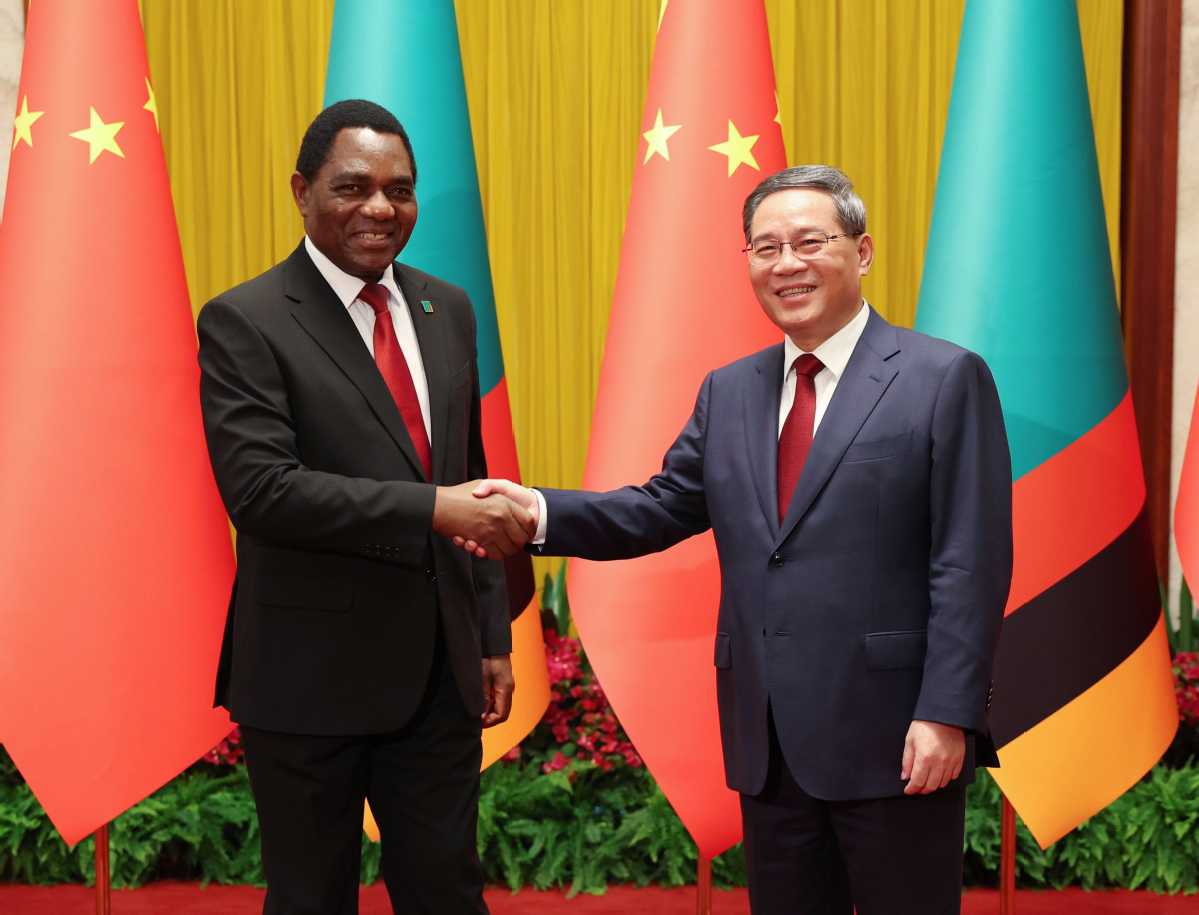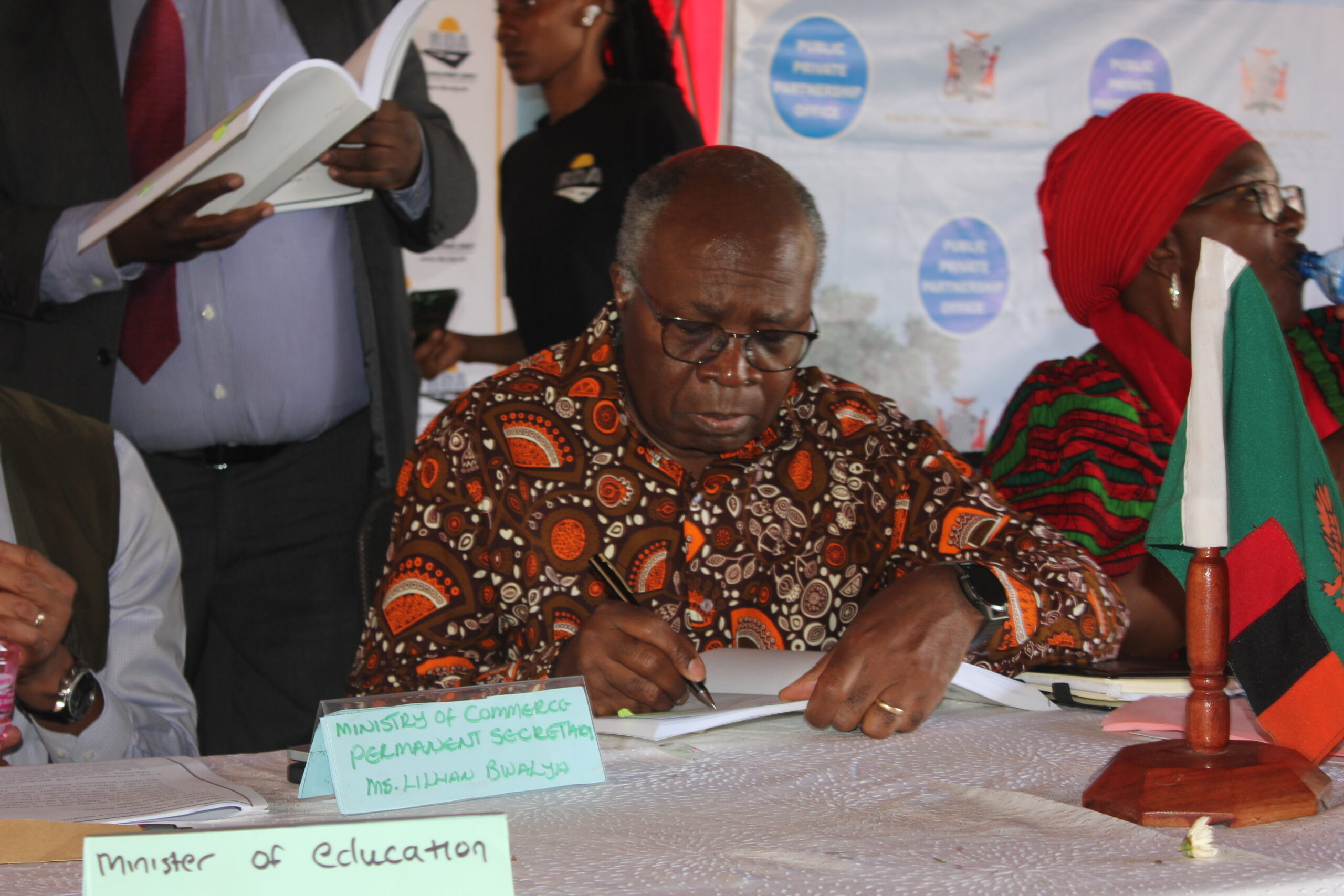Zambia and China have celebrated 60 years of diplomatic relations marked by significant
achievements and strategic projects. Speaker of the National Assembly Nelly Mutti emphasized that the future of this relationship must center on sustainability, transparency, and mutual benefits to drive growth for both nations.
Key Milestones in Zambia-China Relations
1. Infrastructure Development:
○ China has been a major contributor to Zambia’s infrastructure growth. Notably, the Tanzania-Zambia Railway (TAZARA), completed in 1975 with an investment exceeding $500 million, is one of the longest railways in Africa and continues to facilitate trade routes for Zambia, Zimbabwe, and Malawi.
○ In recent years, China has supported Zambia’s road network, with over 3,000 kilometers of roads built or rehabilitated. Roads such as the Great North Road and Chingola-Solwezi Road have been key for trade, connecting remote regions and reducing travel times significantly.
2. Health and Education:
○ China’s investment in healthcare has included the construction of 500-bed hospitals and over 100 health clinics in rural areas to expand Zambia’s healthcare access.
○ In education, China has provided over 1,000 scholarships to Zambian students for higher education in Chinese institutions, with additional funding for vocational training in fields like engineering and IT. Plans are underway to establish exchange programs and upgrade Zambian technical colleges to meet international standards.
3. Energy Sector:
○ China’s engagement in Zambia’s energy sector has been instrumental, with investments like the Kariba North Bank Hydropower Extension Project, which added 360 megawatts to Zambia’s energy grid, crucially supporting both urban and rural electrification.
○ Ongoing projects include collaborations to develop solar energy plants and mini-hydropower stations to help Zambia diversify its energy sources and reduce reliance on hydroelectric power, given the increasing challenges of droughts.
Future Plans and Projections
Looking forward, Zambia and China are exploring several areas to deepen their partnership:
1. Agriculture:
○ Zambia is looking to tap into China’s agricultural technology to boost productivity and food security. A planned investment of $100 million over the next five years aims to establish agro-processing zones, introduce advanced farming techniques, and provide mechanization support to small-scale Zambian farmers.
○ Joint programs are also anticipated to promote cash crops such as soya, maize,
and groundnuts, which will boost Zambia’s exports to China and other global markets.
2. Digital Technology and Innovation:
○ To foster a digital economy, China plans to assist Zambia in building digital infrastructure, including expanding broadband coverage in rural areas and upgrading government technology systems. China’s support includes $50 million earmarked for ICT development over the next three years, covering areas from internet access to digital literacy programs.
○ Future projects will support the digitization of Zambia’s public services, with initiatives like e-governance platforms and smart city projects in Lusaka and Kitwe.
3. Green Initiatives:
○ Zambia and China have committed to sustainable development, with a $20 million investment in afforestation and wildlife conservation projects. This includes support for Zambia’s carbon credit initiatives aimed at reducing greenhouse gas emissions through reforestation and eco-friendly practices in mining and agriculture.
○ Joint research projects on climate resilience, particularly in areas prone to drought, are also planned to help Zambia adapt to climate change challenges.
4. Mining and Resource Development:
○ China remains one of the largest investors in Zambia’s mining sector, particularly
in copper. Moving forward, both countries are working to establish more sustainable mining practices, with plans to reduce environmental impacts and promote fair labor standards.
○ Zambia seeks to diversify its resource base with China’s assistance, focusing on rare earth minerals essential for the tech industry. Plans include setting up jointly managed processing facilities and ensuring a balanced distribution of profits to benefit local communities.
Building a Transparent Future
As Zambia and China strengthen their partnership, both governments are committed to fostering transparent and sustainable agreements that reflect their shared values. With over $2 billion in annual trade and China as Zambia’s largest foreign investor, the focus will be on open dialogue and equitable economic growth to build on their 60-year legacy.
With a new roadmap that prioritizes long-term benefits, Zambia and China stand ready to set a standard for international partnerships—one that promises development while safeguarding transparency and fairness. The next chapter in their relationship could set new precedents for sustainable cooperation and cross-border innovation.








